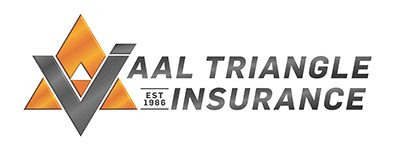
How the 2023 Budget Will Impact Your Pocket
Finance Minister Enoch Godongwana’s 2023 Budget Speech has been widely described as “conservative.” Most experts agree that it contained few surprises and many feel that it didn’t do enough to address the myriad challenges facing the South African economy. While it’s hard not to be pessimistic about ESKOM, greylisting and the cost-of-living crisis, the budget did provide some relief for individual taxpayers.
As you were
In what was a very welcome move the finance minister did not announce any significant tax proposals. What was more, to avoid so-called ‘bracket creep’ he announced that all personal income tax brackets will be adjusted for inflation. This means you won’t be giving any more to the taxman than you already are.
Retirement tax withdrawals have also been adjusted for inflation, so you can now withdraw up to R550,000 (an increase of R50,000) at retirement without paying tax. For homeowners there’s also been a 10% increase in transfer duty brackets, allowing properties valued under R1.1 million to avoid any transfer duty payments.
To further protect South Africans’ pockets, the minister announced that the fuel levy, the Road Accident Fund levy and the sugar tax will not increase. Even sin taxes only increased by inflation – a big change from previous years where increases on excise duties on alcohol and cigarettes have hovered around the 10% mark.
Look on the bright side
Arguably the most exciting component of the 2023 budget was the introduction of solar panel tax incentives for individuals and businesses.
- Individuals will be able to claim a rebate to the value of 25% of the cost of new and unused solar photovoltaic (PV) panels, up to a maximum of R15,000 per individual. The rebate applies to qualifying solar PV panels that are brought into use for the first time in the period 1 March 2023 – 29 February 2024. Other components of a system – batteries, inverters, etc – and installation costs do not qualify.
- Businesses will qualify for an expanded 125% tax deduction (yes, that’s cost + 25%) on the total cost of solar photovoltaic projects for a 2-year window period. Businesses that invest in alternative electricity will be able to drastically reduce their tax bills.
The incentive for businesses has been widely praised by experts, and it should help to ease the burden on ESKOM while also improving energy sustainability in South Africa. The maximum rebate of R15,000 for individuals is not nearly as exciting as a decent solar system can easily set you back R200,000. In the words of energy expert Chris Yelland “the announced tax incentives for solar PV installations by individuals are very timid and weak, and as a result, will likely be ineffective in reducing load-shedding in SA.”
Other highlights
- In an attempt to keep food prices down, the diesel fuel levy refund (R2-18 per litre) will be extended to food manufacturers.
- In an effort to address the effect of remote work on personal income tax, Treasury and SARS will release a discussion document about home office and travel allowance policies.
The bottom line
South Africa faces a lot of economic challenges, not least the impact of rolling blackouts and the recent FATF decision to officially greylist the country. Amid all these concerns it’s a great relief that we won’t be paying any more taxes this year. While the solar panel incentive for individuals is better than nothing, the incentive for businesses promises to be a real game changer.
Provided by Vaal Triangle Insurance
© DotNews. All Rights Reserved.
